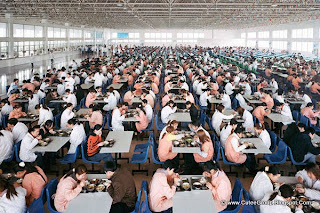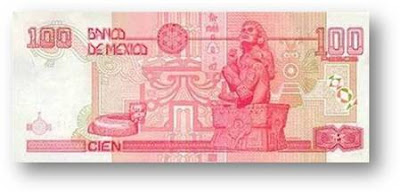Work In China
Burtynsky has always been interested in man-made changes in the landscape and territory, especially those to do with the development of industries. There is something philosophical about all this. According to him, the main stages in human evolution are measured by the use and exploration of the Earth's resources by humans: the Stone Age, Metal, Coal, Oil, etc. In his work, he tries to capture, in details and contrasts, the dialectics of a human being, who, in the search of a more comfortable environment, quickly consumes and destroys it. These images of contradiction are understood by the artist as a metaphor for modern times. His recent reportage about manufacturing in China is an example of this point of view.
Perhaps we all knew - or, at least, imagined - that it would be this way. However, the photographer's pictures reveal not only the detail, but also the extent of the reality of industrial and semi-industrial production in China. This production currently occupies an ever-growing part of the world's market: 70% of Christmas decorations, 29% of television sets, 75% of toys and probably almost 100% of t-shirts are produced in China, by millions of Chinese workers.
Each worker is, in a way, a cog in this huge, well-oiled production machine. This human network is spread over a vast territory, like a uniform backdrop. The patterns are repeated to exhaustion, in an orderly, sickly way. There is no exception to this rule in cities, houses, streets, provinces. Even the colours have become a standardised. Burtynsky's photos reveal that, but aren't devoid of beauty. They are reminiscent of some of Pollock's paintings. And here, gesture is everything.


Perhaps we all knew - or, at least, imagined - that it would be this way. However, the photographer's pictures reveal not only the detail, but also the extent of the reality of industrial and semi-industrial production in China. This production currently occupies an ever-growing part of the world's market: 70% of Christmas decorations, 29% of television sets, 75% of toys and probably almost 100% of t-shirts are produced in China, by millions of Chinese workers.
Each worker is, in a way, a cog in this huge, well-oiled production machine. This human network is spread over a vast territory, like a uniform backdrop. The patterns are repeated to exhaustion, in an orderly, sickly way. There is no exception to this rule in cities, houses, streets, provinces. Even the colours have become a standardised. Burtynsky's photos reveal that, but aren't devoid of beauty. They are reminiscent of some of Pollock's paintings. And here, gesture is everything.

























Post a Comment
Thanks For Your Comment